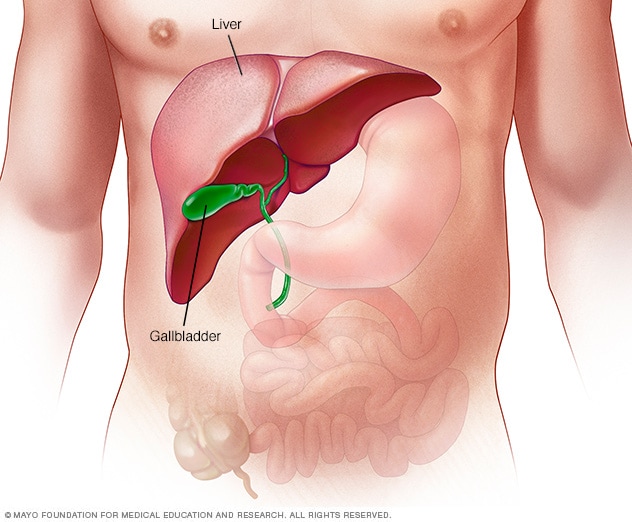It may not feel like it, but summer will soon be upon us. This means ample opportunity to walk around with your shirt off and impress everyone. But right now that may not be such an appealing idea. One thing that winter always provides is a few extra inches around the waist, and a determination that you’ll be ripped by summer. But how do you go about getting shredded between now and the end of spring? Well this article will help you get there. We are going to look at five ways to get shredded this summer. Tip #1: Take stock of your current situation Before making any plans you really should take a good look at where you are currently at physique and fitness wise . If you are borderline obese and haven’t run 100m since high school then jumping into a 5 times per week crossfit program is probably not going to lead to good results! But even if you are in decent shape, you will still get huge benefits from assessing yo...
Overview
-
Liver problems
 The liver is an organ about the size of a football that sits just
under your rib cage on the right side of your abdomen. The liver is
essential for digesting food and ridding your body of toxic substances.
The liver is an organ about the size of a football that sits just
under your rib cage on the right side of your abdomen. The liver is
essential for digesting food and ridding your body of toxic substances.Liver disease can be inherited (genetic) or caused by a variety of factors that damage the liver, such as viruses and alcohol use. Obesity is also associated with liver damage.
Over time, damage to the liver results in scarring (cirrhosis), which can lead to liver failure, a life-threatening condition.
Symptoms
Signs and symptoms of liver disease include:- Skin and eyes that appear yellowish (jaundice)
- Abdominal pain and swelling
- Swelling in the legs and ankles
- Itchy skin
- Dark urine color
- Pale stool color, or bloody or tar-colored stool
- Chronic fatigue
- Nausea or vomiting
- Loss of appetite
- Tendency to bruise easily
When to see a doctor
Make an appointment with your doctor if you have any persistent signs or symptoms that worry you. Seek immediate medical attention if you have abdominal pain that is so severe that you can't stay still.Causes
Liver disease has many causes.Infection
Parasites and viruses can infect the liver, causing inflammation that reduces liver function. The viruses that cause liver damage can be spread through blood or semen, contaminated food or water, or close contact with a person who is infected. The most common types of liver infection are hepatitis viruses, including:- Hepatitis A
- Hepatitis B
- Hepatitis C
Immune system abnormality
Diseases in which your immune system attacks certain parts of your body (autoimmune) can affect your liver. Examples of autoimmune liver diseases include:- Autoimmune hepatitis
- Primary biliary cirrhosis
- Primary sclerosing cholangitis
Genetics
An abnormal gene inherited from one or both of your parents can cause various substances to build up in your liver, resulting in liver damage. Genetic liver diseases include:- Hemochromatosis
- Hyperoxaluria and oxalosis
- Wilson's disease
- Alpha-1 antitrypsin deficiency
Cancer and other growths
Examples include:- Liver cancer
- Bile duct cancer
- Liver adenoma
Other
Additional, common causes of liver disease include:- Chronic alcohol abuse
- Fat accumulating in the liver (nonalcoholic fatty liver disease)
Risk factors
Factors that may increase your risk of liver disease include:- Heavy alcohol use
- Injecting drugs using shared needles
- Tattoos or body piercings
- Blood transfusion before 1992
- Exposure to other people's blood and body fluids
- Unprotected sex
- Exposure to certain chemicals or toxins
- Diabetes
- Obesity
Complications
Complications of liver disease vary, depending on the cause of your liver problems. Untreated liver disease may progress to liver failure, a life-threatening condition.Prevention
To prevent liver disease:- Drink alcohol in moderation. For healthy adults, that means up to one drink a day for women and up to two drinks a day for men. Heavy or high-risk drinking is defined as more than eight drinks a week for women and more than 15 drinks a week for men.
- Avoid risky behavior. Get help if you use illicit intravenous drugs, and don't share needles used to inject drugs. Use a condom during sex. If you choose to have tattoos or body piercings, be picky about cleanliness and safety when selecting a shop.
- Get vaccinated. If you're at increased risk of contracting hepatitis or if you've already been infected with any form of the hepatitis virus, talk to your doctor about getting the hepatitis A and hepatitis B vaccines.
- Use medications wisely. Take prescription and nonprescription drugs only when needed and only in recommended doses. Don't mix medications and alcohol. Talk to your doctor before mixing herbal supplements or prescription or nonprescription drugs.
- Avoid contact with other people's blood and body fluids. Hepatitis viruses can be spread by accidental needle sticks or improper cleanup of blood or body fluids.
- Take care with aerosol sprays. Make sure the room is ventilated, and wear a mask when spraying insecticides, fungicides, paint and other toxic chemicals. Always follow the manufacturer's instructions.
- Protect your skin. When using insecticides and other toxic chemicals, wear gloves, long sleeves, a hat and a mask.
- Maintain a healthy weight. Obesity can cause nonalcoholic fatty liver disease.

Comments
Post a Comment